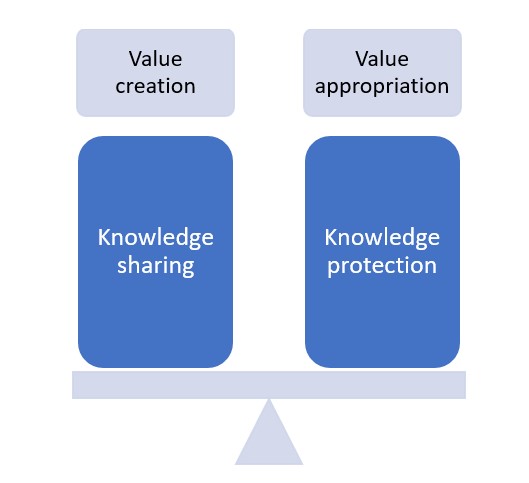|
|
Module 4: How to build mindset toward open innovation in your SME. |
|
|
Prof. Marina Dabić, Tena Obradović Posinković |
|
|
Open innovation mindset. Building an open innovation mindset can help SMEs in bioeconomy and agro-food industry to successfully implement open innovation activities, to ensure effective collaboration with external partners and to boost innovations. Consequently, an open approach to innovation could help SMEs in bioeconomy and agro-food industry to reduce product development costs, share risks with their partners, make products more customer-oriented and shorten time to market. With new advanced technologies in an already globalized world, SMEs in bioeconomy and agro-food industry face changes due to supply chains, and realize that their success also depends on external resources. At the same time, SMEs are more flexible and agile than large companies, thus can make decisions faster and adapt their business models. The implementation of open innovation encourages SMEs to expand their R&D processes, but without proper management of knowledge and trust, the innovation can remain unused. |
|
Upon completing this module, you should be able to: |
|
2. Innovation paradox
It is important to analyze external and internal factors that influence the failure of individual innovation ventures in the domain of open innovation in SME. In the existing research, there is a prevailing interest in the determinants of the success of the innovation process, such as the income generated by the commercialization of innovative products and services or the increase in organizational productivity[20]. Considerably less attention is paid to the issue of business models and organizational climate, as well as innovation failure, which is usually viewed as accumulated knowledge necessary for the success of future innovation processes.
The paradox of openness describes the essential tension between knowledge sharing and knowledge protection in open innovation, while sharing is vital for value creation, protecting is critical for value appropriation[21]. Employees in SMEs often face fear and negative attitudes towards ideas and products that are not derived from their own company (Not-Invented-Here syndrome), accordingly, managing newly acquired knowledge is especially important for easier integration of knowledge into everyday business[22]. Companies need to find a balance between sharing the knowledge which allows them to develop new products and services more efficiently, and on the other hand protect companies’ intellectual property.
Ideas and knowledge from outside the company can affect employees in different ways[23] :
- Making employees feel uncomfortable
- External ideas can disturb employees work routines
- External ideas can hurt employees pride
The NIH syndrome will worsen the performance, disable knowledge transfer and eventually projects will fail. The problem arises when group of people who work together for a long time, became cohesive and separate themselves from professionals from outside the team, and do not follow new technological development[24]. The Not-Invented-Here syndrome can be seen as obstacle for further knowledge transfer and can harm companies’ performance. Since all knowledge does not exist inside one organization, it is necessary for project team to acquire the knowledge outside their group.

Figure 2: Paradox of openness
Source: Foege J.N., Dragsdahl Lauritzen G., Tietze F., Salge T.O. (2019). Reconceptualizing the paradox of openness: How solvers navigate sharing-protecting tensions in crowdsourcing, Research Policy, 48(6), 1323-1339.
Take a 3-5 minutes and think:
1. What are the internal and external actors that influence the failure of innovation in our SMEs ?
2. What can our SME do to encourage employees to share knowledge with partners from outside our own organization?
Write down your answers.